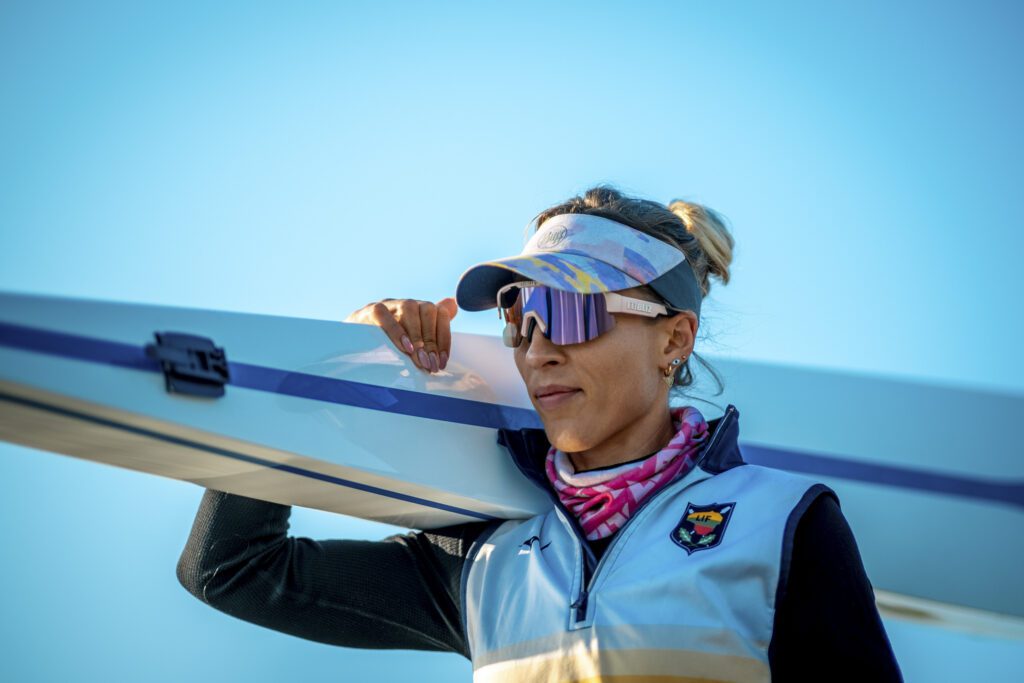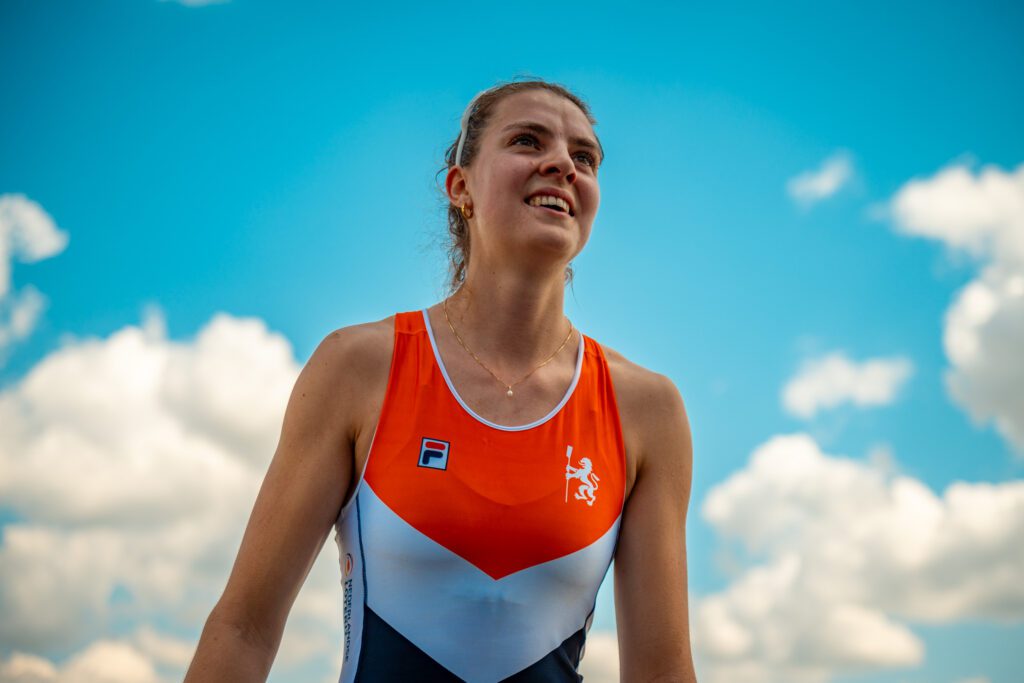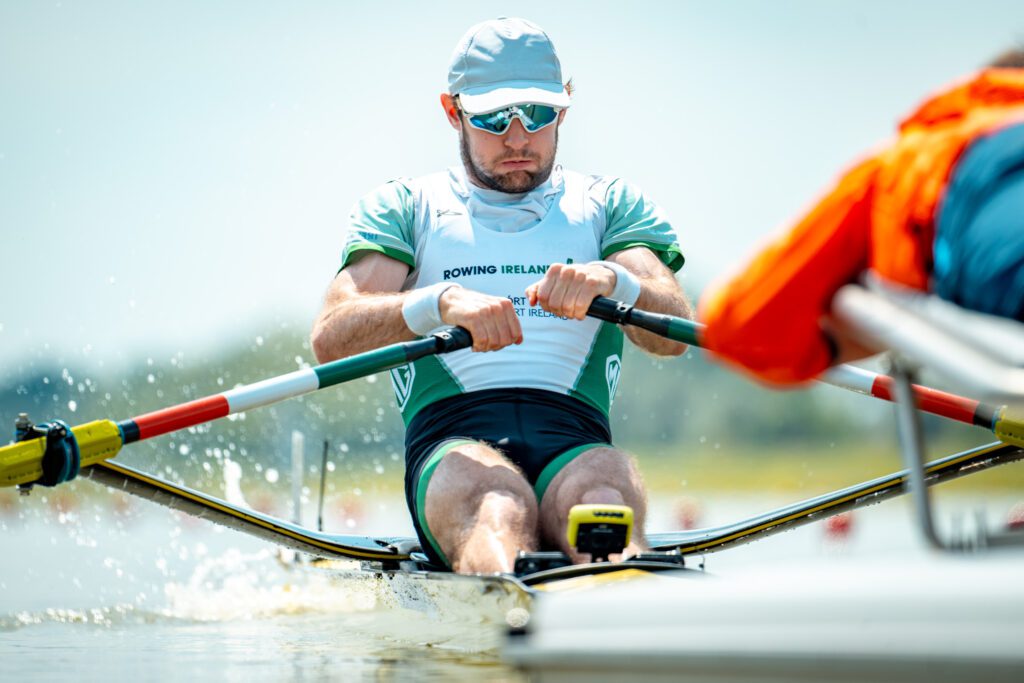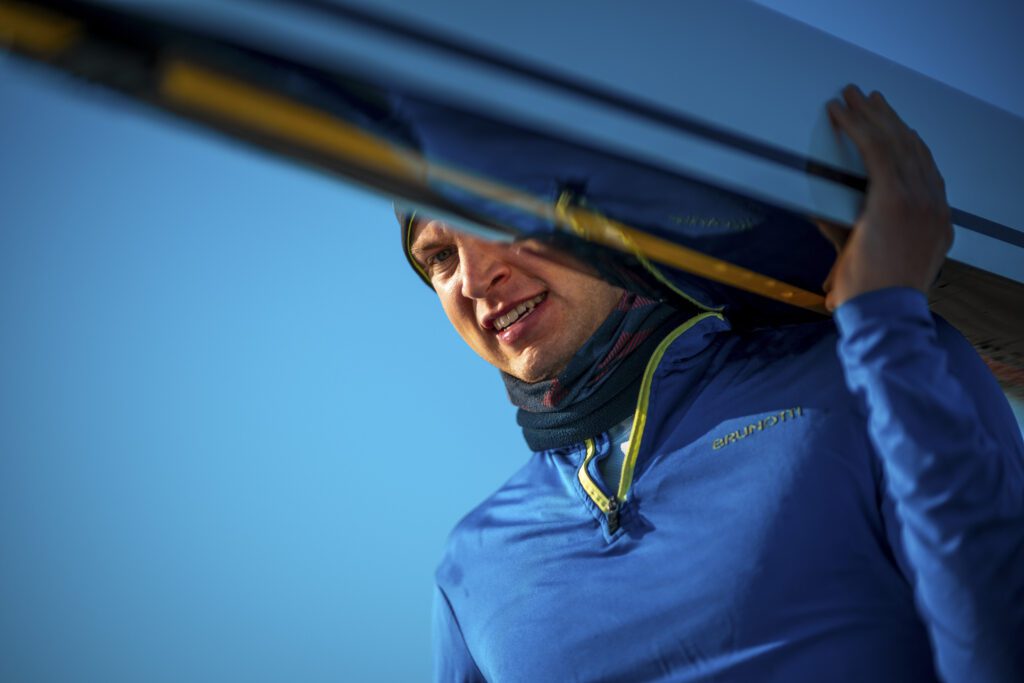More than two hundred days on from the end of the 2023 world championships, and there’s just one qualification regatta left to allocate racing spots at the Paris 2024 Olympic and Paralympic Games. With the European qualifying regatta just concluded in windy Szeged we are nearly at a full house, and have only the Final Olympic and Paralympic Qualification Regatta (FOPQR) in Lucerne at the end of May yet to come. Meanwhile 35 new countries have added themselves to the guest list in the seven months since the worlds in Belgrade last September.
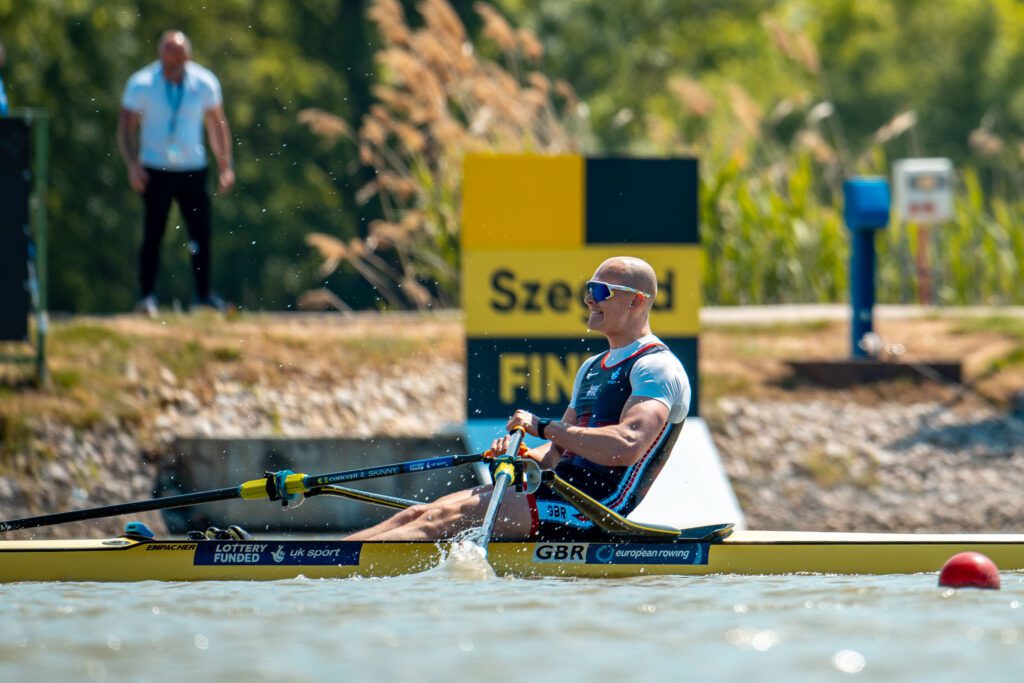
Photo GBR M1x George Bourne
Credit Benedict Tufnell
The qualification diversification plan is working: countries which didn’t reach the finals at the 2023 worlds will outnumber those who did – at the Olympics and won’t be far behind at the Paralympics.
Continental qualification regattas are peculiar things: tiny numbers of competitors, lots of officials, but an intense atmosphere. There are no medal presentations or anthems for the qualifiers, even if the event is combined with the continental championships, just a short celebration ceremony, though with the usual amount of hand-shaking. Unlike the worlds, anyone who bags a Paris place at these competitions or the FOPQR must race this event (i.e., boat class) if they race at the Olympics/Paralympics at all.*
Africa kicked off first, the AOPQR being held on Lake Tunis, its usual venue, only a month after the 2023 world champs. The growing rowing scene in several African countries then posed a problem, since Egypt and Tunisia each finished high enough to qualify in three or more Olympic events. The limit for continental qualification is two crews maximum (one if you already qualified one crew at the worlds), so then their quota is reduced by taking the highest-ranked crews in their team in the QR events.
That opened the door to lower-placed scullers in the women’s singles being eligible, with the extraordinary outcome that seventh-placed 23-year-old Madjouline El Allaoui of Morocco ended up getting a ride to Paris from her first senior flatwater regatta, despite not making the A-final. The happiest B-final winner ever.
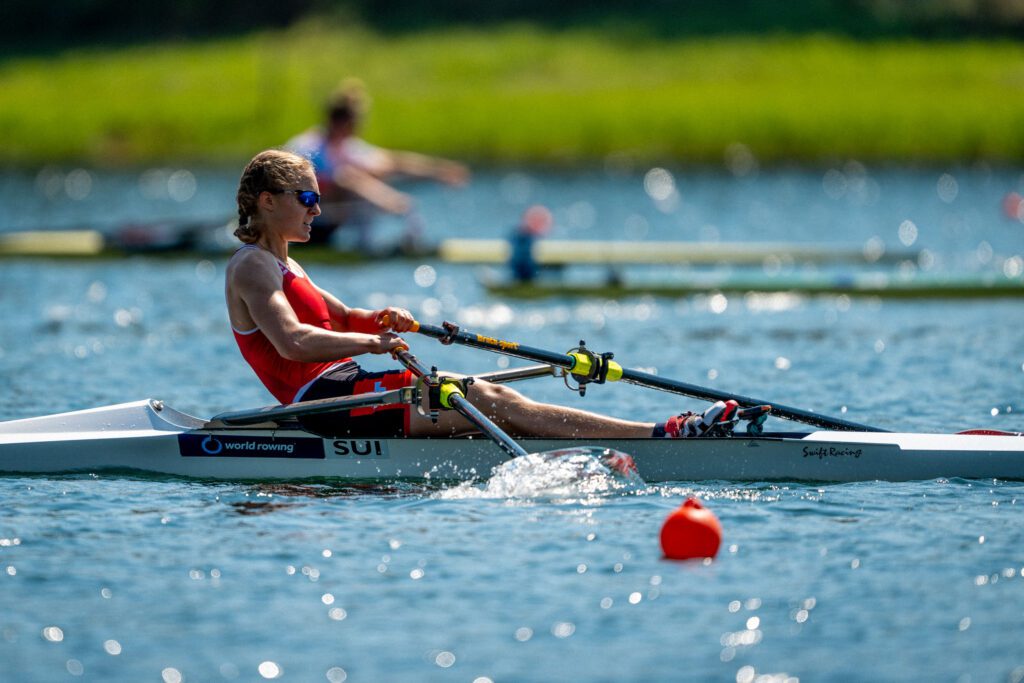
Photo SUI W1x Aurelia-Maxima Janzen
Credit Benedict Tufnell
Another performance of note came from Sid Ali Boudina, the double Olympian Algerian sculler who defended his lightweight men’s singles continental title on Tuesday, October 24, 2023, and promptly bagged an openweight singles places at the Olympics a day later, finishing third against full openweights. This will be the third time Ali Boudina has reached the Games: he finished 17th in the Tokyo LM2x and before that 23rd in the Rio M1x.
Then there was the Americas, where Argentina, Brazil, Paraguay, Peru and Cuba each qualified two Olympic crews, with Argentina’s W1x Maria Amaya being edged out by their higher-placed crewboats. The Paralympic places went to Canada’s Jacob Wasserman (PR1 M1x) and Mexico’s PR3 Mx2x, while the PR1 W1x place will be reallocated since there were not enough entries for an event. Mexico in fact won both the Paralympic finals, so had to decide which of the double and their PR1 sculler Michel Munoz Malagon would go to the Games (Paralympic numbers are smaller so it’s one per CQR).
Next came Asia (coinciding with the first world cup of the season), which added another three Paralympic nations and 11 Olympic nations to the list. Japan won both lightweight doubles, and came second in the women’s singles, which means Shiho Yonekawa won’t be going to Paris. Uzbekistan’s Shakhboz Kholmurzaev loses out for a similar reason, after coming fifth in the men’s singles while UZB new Belarus-born former Russian sculler and new recruit Anna Prakaten and the team’s LM2x ranked higher.
There was controversy in the PR1 men’s singles, won initially by Kazakhstan’s Temirkhan Daiyrbek who was later excluded due to an issue with his trunk strap. This promoted third-placed Sri Lankan Jakakodi Priyamal, who now goes to Paris along with Japan’s Takuya Mori.

Photo MEX PR1 M1x Michel Munoz Malagon
Credit Benedict Tufnell
And finally to Europe at the end of April, where the races quietly intertwined with the already high-octane European championships schedule in Szeged but were no less important for that. They were also the first qualification regattas to formally feature the Individual Neutral Athletes (abbreviation AIN), which is the only affiliation under which athletes whose countries are currently ineligible for international competition (Belarus and Russia) can compete, provided that they demonstrate no active support for the war in Ukraine. Tatsiana Klimovich won to take an AIN place in the W1x, the second after Yauheni Zalaty won the M1x B-final at last year’s worlds and has now been ruled an AIN.
The other results varied: the two Paralympic singles races were won by large margins, putting Switzerland and Spain into the September Games, while Poland and Austria easily claimed the lightweight women’s Olympic places. There were insufficient entries for a PR3 Mix2x race, and the other two finals were much closer. After a tight contest which saw Poland and Austria drop back through the pack, the lightweight doubles spots went to Ukraine and Belgium. Nikolaj Pimenov (rowing for Serbia since 2023) won the M1x with Kristian Vasilev (BUL) and Tim Brys (BEL) on his heels all the way. That puts a Nikolay Pimenov back at the Olympics for the first time in 32 years, after Nikolaj junior’s legendary father, rowing for Russia, finished 15th at the 1992 Barcelona Games in the men’s pair.
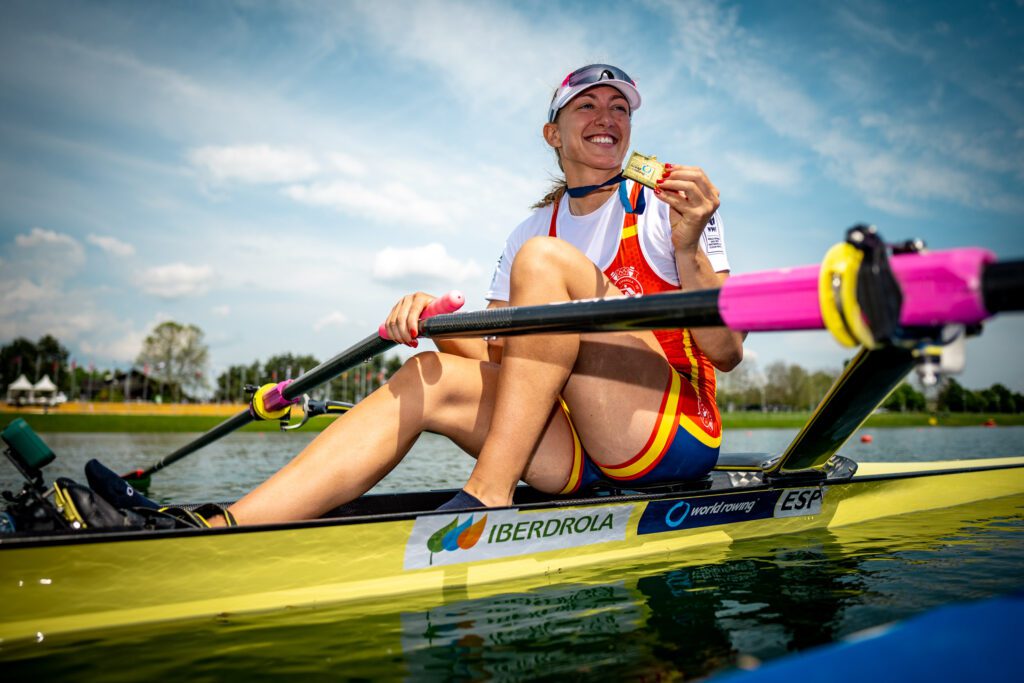
Photo ESP W1x Virginia Diaz Rivas
Credit Benedict Tufnell
These results will have been pretty satisfying for the remaining Europeans who have to qualify the singles and lightweight doubles, varying from Kjetil Borch (NOR M1x), who had to pull out of the 2023 worlds injured, through Sanita Puspure, making her comeback in the Irish women’s single, to newcomer George Bourne (GBR M1x). We’re also expecting an Italian men’s single and Italian lightweight women’s double (identities to be confirmed but both likely to be fast) and for the women’s singles to be contested by Aurelia-Maxima Jenzen (SUI) and Virginia Diaz Rivas (ESP). None of these European scullers could appear in Szeged as their countries have qualified two or more crews for the Games already.
There are a few weeks to go until the Olympics, and only one chapter of the Paris qualifying story remains to be written, on the azure blue waters of Lake Rotsee in Lucerne. Along with the remaining small boats there are last-chance races for all the other categories meaning we will get a first look at the new US and Canadian eights, both of which failed to qualify last time and who will be up against Italy, who have been performing well this summer. New Zealand has two quads coming, Canada are also sending a women’s eight which will have to fight off Germany and Italy, and the buzzing Australian men’s quad from Varese will be in action again. We can expect Estonia and Ukraine’s quads to be making waves, along with Italy’s and Switzerland’s fours.

Photo ZIM M1x Steve Cox at 2023 Henley Royal Regatta
Credit Benedict Tufnell
In Lucerne, it will be two through for Olympic spots and one through for Paralympic singles and PR3 doubles, with two through for the PR2 doubles and PR3 fours. There is no limit to how many boats a country can qualify at this final regatta. After that there is a short window during which nations winning these spots must finalise decisions, and then tripartite and bipartite allocations are made. France’s allocations as host country will be redistributed, since they have already qualified three Olympic and three Paralympic crews. This varies between the two contests: for the Olympics it goes to the next country in the FOPQR W1x and M1x which hasn’t already qualified for the Games, which could get interesting. For the Paralympics they are added to the bipartite commission’s allocation.
Drop-outs which happen after the allocations are generally dealt with by giving the place to the next country which didn’t qualify at the relevant regatta, or if that’s impossible or things get really late are allocated by the World Rowing executive (Olympics) or the bipartite commission (Paralympics). This happened in Rio 2016 when the Sochi drugs scandal ruled nearly all the Russian athletes out of competition, and some rowers who had expected to be watching on TV suddenly found themselves packing for the Games.
Either way we expect a full house in Paris, and those who nearly but didn’t quite make it would be sensible to keep in training. The guest list is nearly complete….

Photo NOR M1x Kjetil Borch
Credit Benedict Tufnell
*There is a very odd loophole here, the wording actually meaning that in theory if the qualified person was ill, and couldn’t go to the Games at all, then it looks as if the nation could nominate another person rather than having to cede the spot. In other words, having to compete in your qualification place if you go to the Games is not the same as a specific rower having to be in the crew no matter what. But in practice national committees don’t think this is clever to mess about with, so barring some big problem such a swap is unlikely ever to happen.
